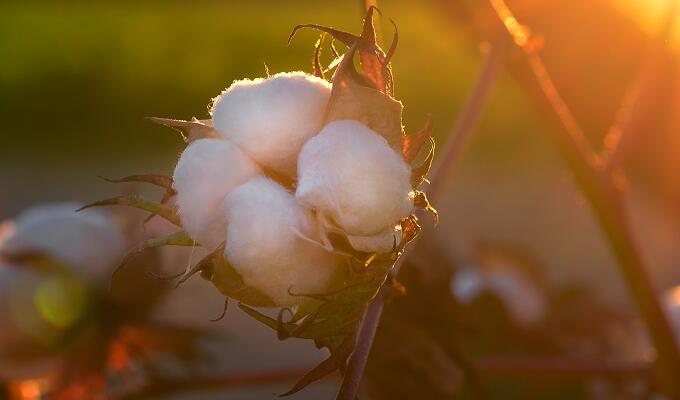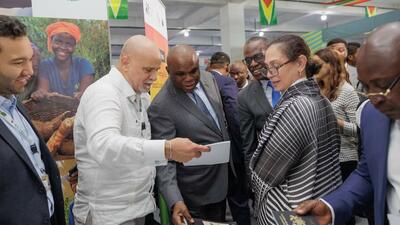

Enhancing the cotton value chain for the ‘Cotton Four’ (en)
Cotton is one of the world’s most actively traded commodities. It is also a product of vital importance to the economic development and poverty reduction strategies for a number of developing economies, and particularly the least developed among them.
Four cotton producers in sub-Saharan Africa – Benin, Burkina Faso, Chad and Mali, known as the Cotton Four or C4 – are leaders in an industry that is essential to each country’s economic and social development and well-being. However, all four face challenges in production, processing and marketing of their cotton and its by-products. The International Trade Centre (ITC) and World Trade Organization (WTO) are working to help solve them.
The Cotton Roadmap Project, developed by the C4 in cooperation with ITC, seeks to address these issues through optimizing production, improving local processing capacity and developing regional cotton-to-textile value chains. The objectives of the project reach well beyond the C4 region, also encompassing the Western and Central African sub-region.
One of the challenges facing the C4 is that they produce the lowest yield per hectare of cottonseed in the world, with average annual production estimated at 500,000 tonnes.
Cotton processing capacity at the local level is close to zero and is at less than 2% for all four countries combined.
This has led to the countries’ national wealth and the creation of jobs being sent outside the C4, with huge attendant losses in revenue. In addition, access to markets is diminished by anti-competitive policies such as export subsidies and other internal policies that have a distorting effect on the market.
In light of these issues, developing value chains seems the best option for enhancing the cotton industry, consequently generating jobs and wealth. C4 countries already have a potential market of 400 million consumers in West and Central Africa.
The value of fibre obtained from one tonne of cottonseed is three to four times greater than the combined value of oil and cake (the solid mass remaining after the oil has been pressed from cottonseeds) obtained from seed processing. For that reason, the production of cottonseed oil and cake are often neglected in some countries. However, revenue from the sale of seeds largely covers the cost of ginning, a process where the lint and seed are separated. In Cameroon, for example, the Société de développement du coton du Cameroun (Sodecoton) has been shielded from huge losses that affected other West and Central African countries, mainly thanks to cross-subsidization resulting from its profitable cotton oil trade.
Most cottonseed oil produced in C4 countries is consumed locally. However, all four countries import edible oils, mainly palm oil. The consumption share of edible oil from cottonseed in the C4 is close to 50% and is even higher in Benin, Burkina Faso and Mali. The Cotton Roadmap Project aims to expand the consumption of cottonseed oil in the C4 countries.
A further aspect of the project is to enhance the artisan cotton industry, which can substantially contribute to creating jobs and alleviating poverty. Women and young people are essential to the success of this sectors, developing artisanal clothing and textiles also has the advantage of promoting and preserving cultural know-how and identity in C4 countries, producing a huge competitiveness potential for niche markets. However, imports of second-hand garments flooding African markets are currently hampering the rise of the textile and clothing sector, a challenge that will be addressed through the Cotton Roadmap project.





